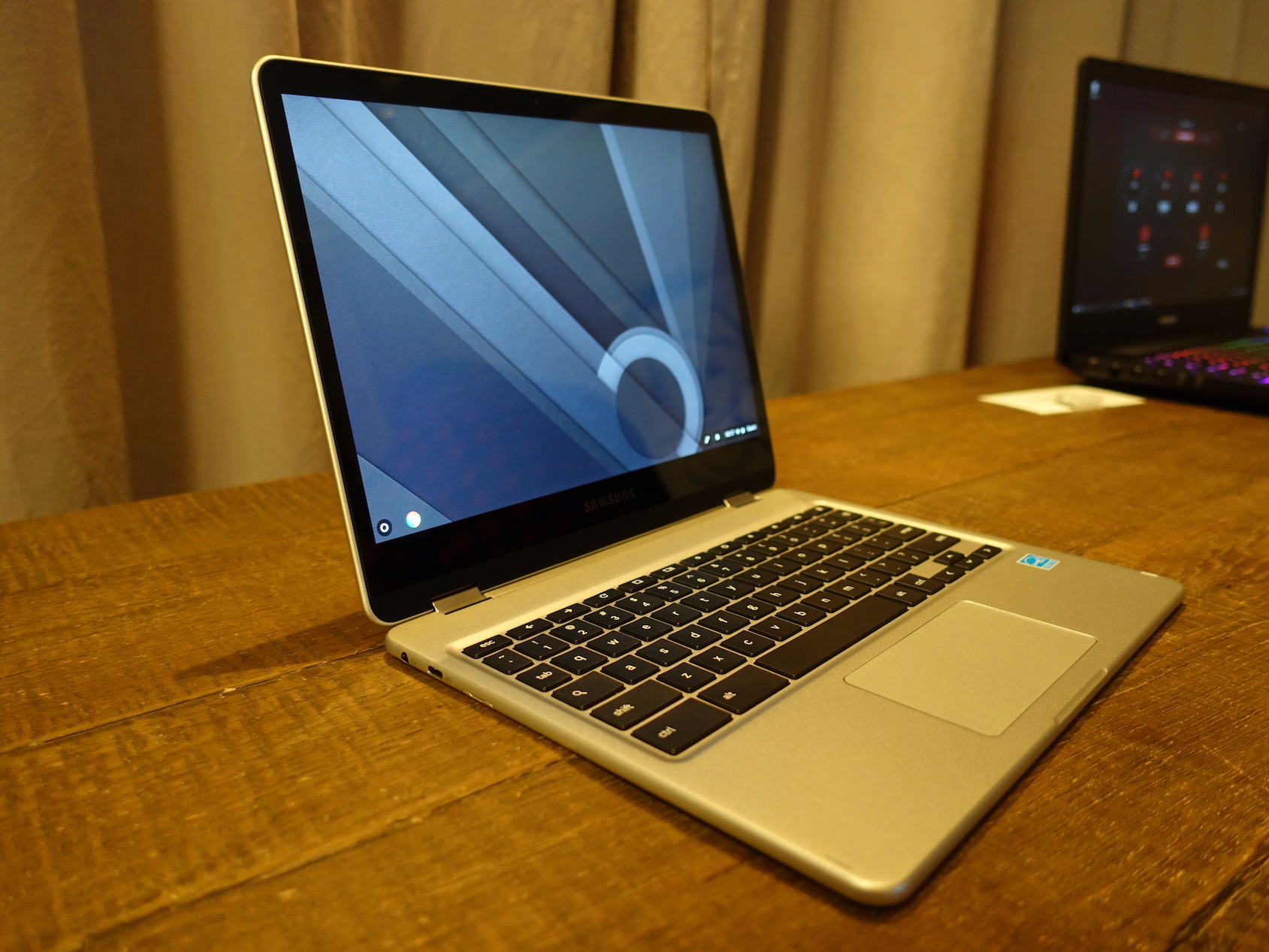Google is ready to push Android’s presence on Chromebooks – and Samsung is making some new hardware to help.
Samsung on Wednesday announced a new pair of Chrome OS machines, the Chromebook Plus and the Chromebook Pro, which Google says were designed to better accommodate Android apps from the Google Play store.
What that means is they’re both convertibles, or “2-in-1s,” so their displays can flip around 360 degrees and become a sort of makeshift Android hybrid tablet. They’re also the first Chromebooks to come with the Play store pre-installed – Google has slowly rolled out Play store support to a small selection of existing Chromebooks over the past few months – and the first to come with native support for a built-in stylus.
On the spec sheet, both machines seem fairly high-end. They each have 12.3-inch displays with taller, 3:2 aspect ratios – so they can fit a little bit more of a webpage on screen – and sharp 2400 x 1600 resolutions.
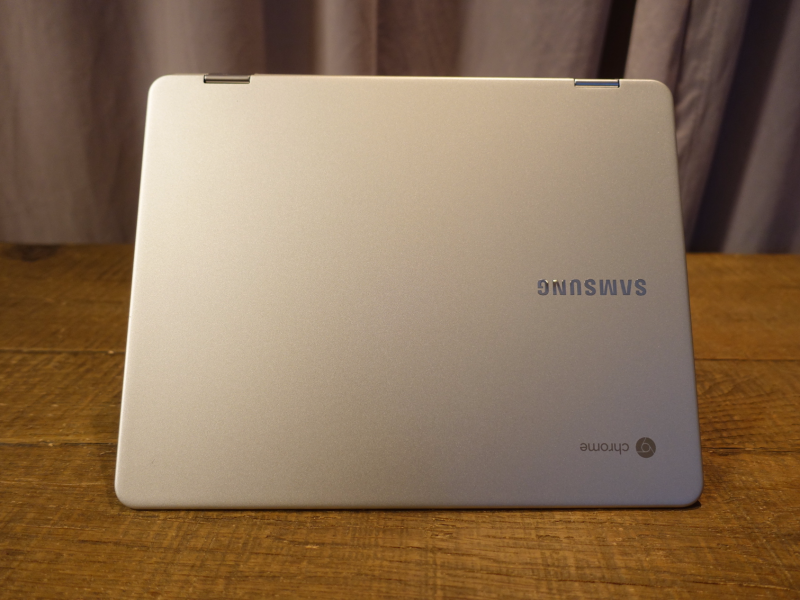
Both are nicely slim and light, measuring about a half-inch thick and just under 2.4 pounds, so it's not the most unweildy thing in tablet mode. There's two USB-C (but not Thunderbolt 3) ports and a microSD card slot on both, as well as an accelerometer and gyrometer, which should help the devices stay compatible with certain Android apps. Samsung rates each battery at about eight hours.
The main difference comes down to processing power. Both laptops feature 4GB of RAM and 32GB of storage, which is plenty for a Chromebook, but the Plus runs on an unspecified ARM chip that's generally meant for mobile devices (likely from Rockchip) while the Pro is powered by a last-gen Intel Core m3 chip, which is mediocre for a Windows laptop, but should be more than enough to handle Chrome OS.
Only the Chromebook Plus model has a set price and release frame: Samsung says it'll cost $449 and arrive sometime in February. The Chromebook Pro is pegged to release "later this Spring," but past leaks suggest it'll cost $499.
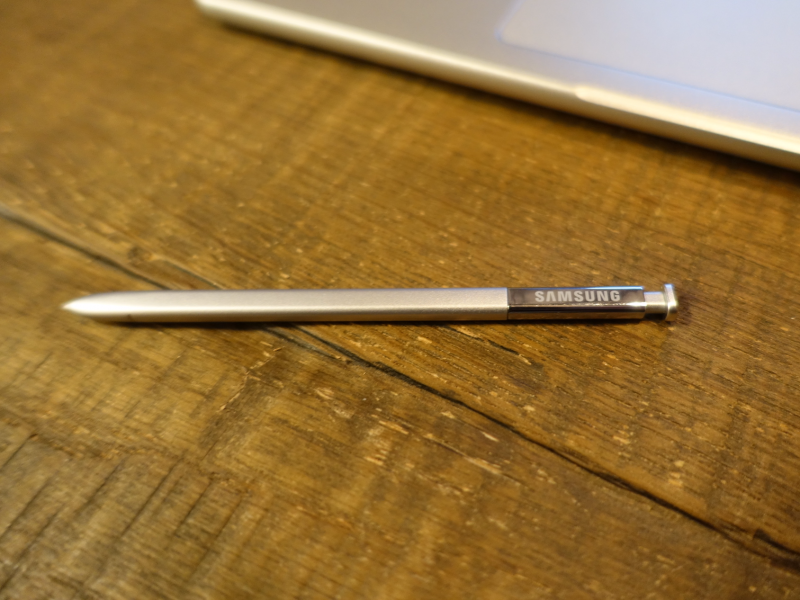
For Chromebooks, these two are pretty expensive. And based on some brief hands-on time with the Chromebook Plus model, I have reasons to doubt they'll be worth the money. Google told me the software on my demo unit wasn't finalized, so I can't knock it for being sluggish, but the hardware itself didn't feel as substantial as other pricey options like the Dell Chromebook 13 or HP Chromebook 13. There isn't much metal here.
It certainly looks sharp, but the keyboard is on the shallow side, and the trackpad wasn't anything special. The built-in stylus, while small, did seem to work in harmony with apps like Google Keep, but the screen wobbled noticeably whenever I wrote with it in laptop mode. On the plus side, the display looked great, and flipping the notebook into a tablet or tent mode was painless. Either way, we'll have to test further before making a recommendation.
The interesting bit here is in the software, as Google tries to overcome the quirks of having Android apps invade another OS. Unfortunately, the Chromebook Plus will only come with the beta version of the Play Store at launch. We've tried that before, and while it has some benefits (offline Netflix!), there's still some fundamental awkwardness, like not being able to granularly adjust window size, or certain apps not being formatted for larger screens.
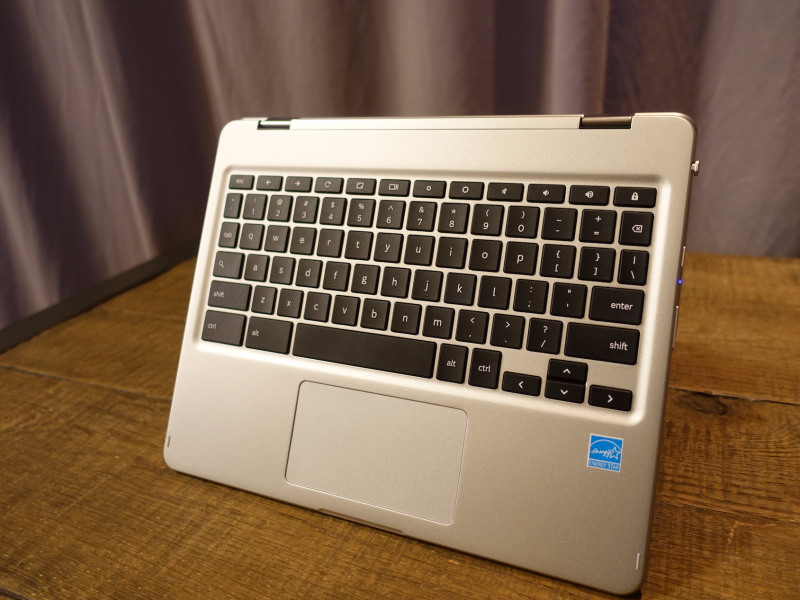
Google laid the groundwork for addressing some of those issues in the latest Android 7.0 Nougat update, but right now the Play Store you'll find on the Chromebook Plus is running on Android 6.0 Marshmallow, with an update to come in a "few months."
Samsung's new Chromebooks are not the first convertible laptops to work with Android apps, and time will tell if they're worth buying, but more significant is how they may mark the start of Google finally getting the Android-Chrome OS combo going after months of delays.
Kan Liu, Google's senior director of product management, says that more "larger screen, productivity-focused, Android-type devices" will be announced by various companies before the Mobile World Congress show in Barcelona next month. That would suggest that having Android apps play nicer outside of a mobile display could become more of a focal point.
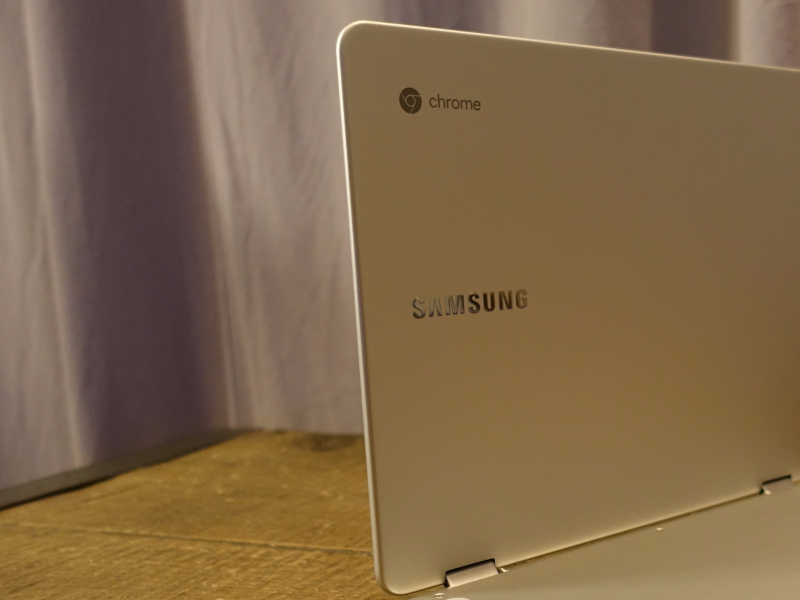
Looming over all this is Andromeda, Google's long-rumored OS that will reportedly blend Android and Chrome OS together completely. Liu couldn't comment on that directly, but did say that Google's general goal is eventually to get a point where people "don't care" about what the underlying OS is on their devices.
"Over time, if [Chrome OS and Android] happen to get closer and closer together - such that, from a development perspective, it's less work to duplicate work - we're happy to have that as well," he said.
For now, though, Samsung thinks what merger is there can be a selling point. We'll let you know if they're right once the Chromebook Plus and Chromebook Pro are available.

